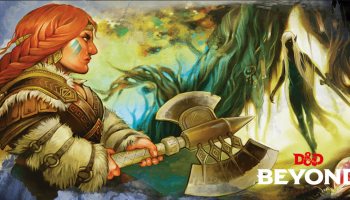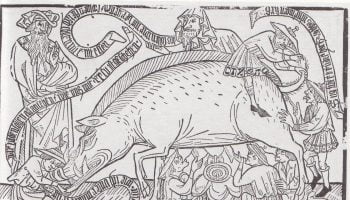For many people all across the political spectra, the recent election has been shocking. Shocking not just because Donald Trump actually won, but because he violated so many norms along the way. Some of the most egregious violations were those that attacked the heart of social liberalism. He began his campaign calling Mexicans rapists. Along the way, he lashed out at people with disabilities. He attacked women, Muslims, African Americans. Practically every group that has been systematically disadvantaged or marginalized within American society, Trump set in his sights. And far from disqualifying him, each new attack seemed to draw him closer to the White House.
Liberal America was shocked. As an article recently published on Slate argued, “2016 Was the Year White Liberals Realized How Unjust, Racist, and Sexist America Is”. And they’re not wrong. A Saturday Night Live sketch about election night, skewered white liberals when one white character cried in shock: “oh my God… I think America is racist!”
For Dave Chapelle and Chris Rock in that sketch, and for many people of color across the country, the sick joke was that America never really stopped being racist. But for many, this was a rude awakening.
What made this so shocking to many was that this is 2016; we are supposed to be past all this. George Wallace is dead and buried. Barack Obama is a popular, accomplished president. Racism, sexism, ableism, anti-Muslim and anti-LGBTQ bigotry definitely exist (despite what the pundits on Fox News—and even some Supreme Court Justices—might intone). But those retrograde forces were supposed to be losing. Naked prejudice was supposed to be a thing of the past, dying out. It was supposed to be consigned to back-woods Klan meetings or the vilest corners of the internet. The fight was supposed to be shifting from the overt to the institutional. Dr. King’s arc of the moral universe was supposed to be bending towards justice.
But clearly, it was not. Despite the fifty years since the beginning of the civil rights movement, and the strides made towards equality within our institutions, hatred and prejudice has been dormant, not dead.
The question is, why? What makes hate so tenacious?

Evan Puschak, who publishes video essays under the moniker “The Nerdwriter” offers an insight that no one else is talking about:
“The dirty secret about sexism, racism, homophobia, prejudice, is that it’s pleasurable. It’s pleasurable to assert your dominance within a hierarchy you create. It’s pleasurable in the same way that winning in a sporting event is pleasurable—the feeling of being a winner, of bettering someone.
So when we think about issues like this, we have to keep in mind that what we’re talking about is people’s pleasure. About taking it away from them—rightly so! It will come as no surprise that they’re as reluctant to let it go here as in any other instance of gratification.”
This lens clarifies things immensely. It begins to explain why prejudice can be so hard to shake off, even by people who may know, intellectually, that it’s wrong. Freud was the first to describe “The Pleasure Principle.” To him, humans are hard-wired to seek out pleasurable experiences, and to avoid pain. It’s our body’s way of telling us that we’re doing something right: eating energy-rich food, having sex, learning a new skill and surmounting a difficult challenge all activate the pleasure centers in our brains for very good reasons. They reward the things that encourage us to win, in an evolutionary sense: survive, thrive, and procreate.
Bullying
But there is another side to this that Freud does not discuss. There are not just physical or intellectual pleasures, but social ones. Some of these—seeing friends, falling in love—are clearly positive. But the darker side of social pleasure is the pleasure derived from domination: not just defeating someone else, but the sadism of making them lose. And definitionally, it is sadistic to derive pleasure by causing someone else pain.
Sadism is fairly normalized in our society: from schoolyards, to sporting events, to boardrooms, to TVs across the country, we are encouraged to revel in our enemies’ losses. This is not merely schadenfreude—happiness at the misfortune of others—but happiness from causing someone else’s misfortune; when our team does not just win, but crushes, humiliates the other side.
Children encountering bullies are often told—by adults and by pop culture—“just ignore them”. But “just ignoring them”, in my experience, rarely works. This is because they do not just get their kicks from getting a rise out of you. It is because, as is also often said, they’re building themselves up—in their own minds and in their social groups—by putting others down. Bullies get pleasure from the act of bullying, from asserting themselves over others. They do this by building social hierarchies where they are the winners, or by latching onto those existing ones where they are already at the top.
The worst bullies are those who come to crave it, who become addicted to that sadistic pleasure like it were heroin. We do ourselves—our society—a disservice when we relegate these observations about bullying to the childhoods of our past.
Because prejudice and hate work exactly the same way. And classing prejudice and hate as a socially pleasurable—even addictive—experience helps reveal some ways to fight it.
Medieval Self-Help

Even as far back as the Middle Ages, people recognized the dangers that pleasurable experiences can pose. The ascetic tradition, the foundation of the monastic orders, is based on the idea that denying yourself pleasure is the path to Godliness. St. Francis of Assisi, founder of the Franciscan Order of monks, was perceptive in this regard. He commanded his followers not just that:
“We ought also to fast and to abstain from vices and sins and from superfluity of food and drink.”
But also that:
“We should never desire to be above others, but ought rather to be servants and subject ‘to every human creature for God’s sake.’ And the spirit of the Lord shall rest upon all those who do these things and who shall persevere to the end.”
The word ‘persevere’ is key. The rule of St. Francis, and that of the other ascetic orders, was hard. That was the point. But through gathering in like-minded communities, self-discipline and continual effort, they made for themselves a path away from the corrupting nature, not of the world, but of our own pleasure principles.
The mistake that some liberals made prior to the 2016 election was to assume that a world free from hatred and prejudice is natural, that the arc of the moral universe bends itself. But denying these pleasurable impulses is hard. It requires effort, vigilance, and self-discipline.
As with any other vice, your social group can motivate you towards discipline and virtue, or to slip. Some people only smoke or drink socially, others indulge in a racist joke now and again, or enjoy “locker-room talk.”
I am not advocating that liberals wall themselves off in monasteries (any more than our social media bubbles have done so already). But in the years to come, it is crucially important that we not slip, no matter which way the cultural winds may blow, and that we expand our bubbles and spread this message. The man entering the White House has a crippling addiction. He is addicted to the poisonous social pleasure of asserting dominance over others. He calls it “winning” (even if he began life on the finish line). We must not fall victim to the same intoxicating poison.





Also worth noting that in Hitler’s justifications for his facist policies, he claimed/inferred that the “inferior” class found a masochistic sexual pleasure in being dominated by the “elite”. So not only does it feel good to be a bully, but some even claim that those being bullied secretly enjoy it as well.
Fascinating– I’d not heard that, but it tracks. Do you have any books or articles on the subject? I’d love to read more.